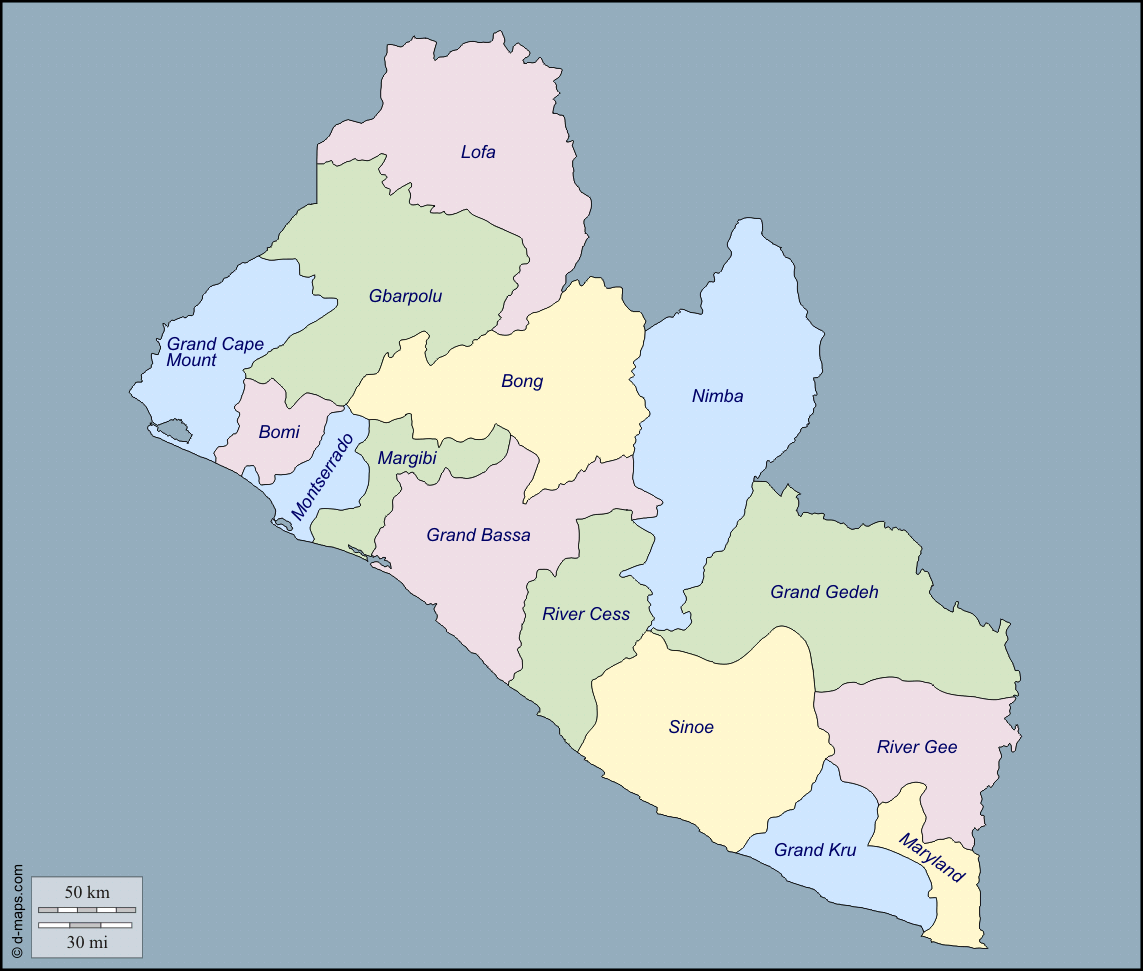Liberia 1 was used in the elections held after the First Civil War. Liberia 2 has been utilized since the conclusion of the Second Civil War. Elections were not held between 1985 and 1997, or between 1997 and 2005.
Liberia 1 (1997)
Voters cast a single ballot for a presidential candidate that was also linked to a closed party list for the House of Representatives. The 64 seats were distributed according to the largest remainder system of proportional representation with a Hare quota in a single national constituency. See the page on Namibia for an example of the use of the electoral system. The legal threshold to receive a seat equaled a Hare quota, or 1.56% of the vote.
Source: Matthias Basedau, “Liberia” in Dieter Nohlen, Michael Krennerich and Bernhard Thibaut, eds., Elections in Africa (New York: Oxford University Press 1999), 511.
Liberia 2 (2005-)
Liberia has elected the House by the single-member plurality electoral system since 2005. The following table shows the number of constituencies in each county. The number of constituencies is linked to a map. Though the maps were different for 2005 and 2011, the boundaries did not change except where the number of constituencies increased. A map of Liberia’s counties appears below the table.
| LIBERIA APPORTIONMENT AND MAPS | ||
| County | 2005 | 2011, 2017 |
| Bomi | 3 | 3 |
| Bong | 6 | 7 |
| Gbarpolu | 3 | 3 |
| Grand Bassa | 4 | 5 |
| Grand Cape Mount | 3 | 3 |
| Grand Gedeh | 3 | 3 |
| Grand Kru | 2 | 2 |
| Lofa | 4 | 5 |
| Margibi | 4 | 5 |
| Maryland | 3 | 3 |
| Montserrado | 14 | 17 |
| Nimba | 7 | 9 |
| River Cess | 2 | 2 |
| River Gee | 3 | 3 |
| Sinoe | 3 | 3 |
| LIBERIA | 64 | 73 |
Source: National Elections Commission, Republic of Liberia.
Counties of Liberia

